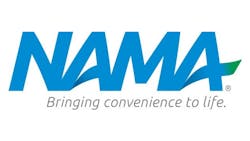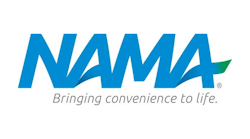
Speakers:
Sylvia Rowe, president, SR Strategy
David Grotto, MD, RDN, LDN, senior nutrition activation business partner, specialty channels and frozen foods, Kellogg's
Diane Striegel, director, sales planning, foodservice, Mondelez International
Lucille Beseler, MS, RDN, LDN, CDE, president, Family Nutrition Center of S. Florida
Elizabeth Mitas Vegas, industry advisor, strategic alliances, Alliance for a Healthier Generation
Larry Soler, founding partner, Convergency
On Thursday at 9:00am there was a session on Nutrition and Wellness Trends. The speakers started off talking about merchandising to capitalize on consumer's habits. They agreed that if you get health and wellness right, you'll change the consumer's perception forever. The industry, they noted, is reacting to health trends but is changing from a reactive state to a proactive one, in which they (the consumers) are taking charge of their health seriously.
Trendy Diets
Lucille Beseler advised that while consumers are listening to the newest diet fads, the most popular or trendy remain atkins, keto, and similar high protein, low carb diets. "People are interested in nutrition. They are listening to 'what's the newest,'" she said. Beseler also mentioned that when considering different food options for a micro market, it's smart to have an array that would appeal to people on different diets such as keto and diabetic.
Diane Striegel asked of the room, "what are consumers looking for?" As expected, due to the name of the session, the answer she gave was not a surprise: "health and wellness." Striegel described how the food pyramid of the past is changing, and the 'grain' layer at the bottom is now being replaced by water. "The greatest impact to reducing calories is eliminating soda," said Striegel. "Consumers are following a 'this is good for me so I'm going to follow it'" type of diet, rather than a fad diet.
David Grotto corroborated this by suggesting that consumer individual diets trump fad diets like atkins and the south beach diet. He went on to describe how consumers are starting to create their individualistic diet, carved around their own needs and wants. Consumers aren't getting their opinions from registered dieticians, Grotto explained. Instead, they're getting their information from grocers, restaurants, and their local vendor or micro market. This gives operators a chance to make "good food sexy and still appealing."
Consumer Education
The panel discussed the confusion among consumers, and the industry's responsibility to educate consumers, presenting and providing things that are healthier. Lucille Beseler said, "nutrition is an ever-changing science." Some of consumer confusion comes from mixed messages from the food industry. The "expert" sources they get their nutritional information from aren't scientists, but consumers aren't looking for credentials. One of the unique opportunities to educate in vending is through FitPick. Another thing a vend operator can do is to cycle a product with nutritional qualities at a discounted rate, and educate consumers about that product. "Provide science-based, nutritionally quality products," said Striegel.
Grotto reminds industry individuals that there is a difference between gluten-free and non-gluten. While both have good connotations, in order to use the term "gluten-free," a product must come from a certified gluten-free facility.
Grotto goes on to discuss the number one attribute that people are looking for, which is "clean label." The challenge in that for the industry is preservatives. Coming up with and creating alternatives to preservatives is difficult. The food industry has been moving towards removing artificial flavors, colors, and other unnatural preservatives. However, sugar, a natural preservative, is often used in natural foods to get around artificial preservatives, but it does not reduce caloric values. "Sugar is the number one thing consumers are concerned with," said Grotto. "It takes time to change the public palate."
Although it will take time to change, educating consumers about healthy products is a huge first step. That along with offering a variety of different healthy products, as well as a spectrum of different types of "healthy," because no one thinks of that term in the same way.





